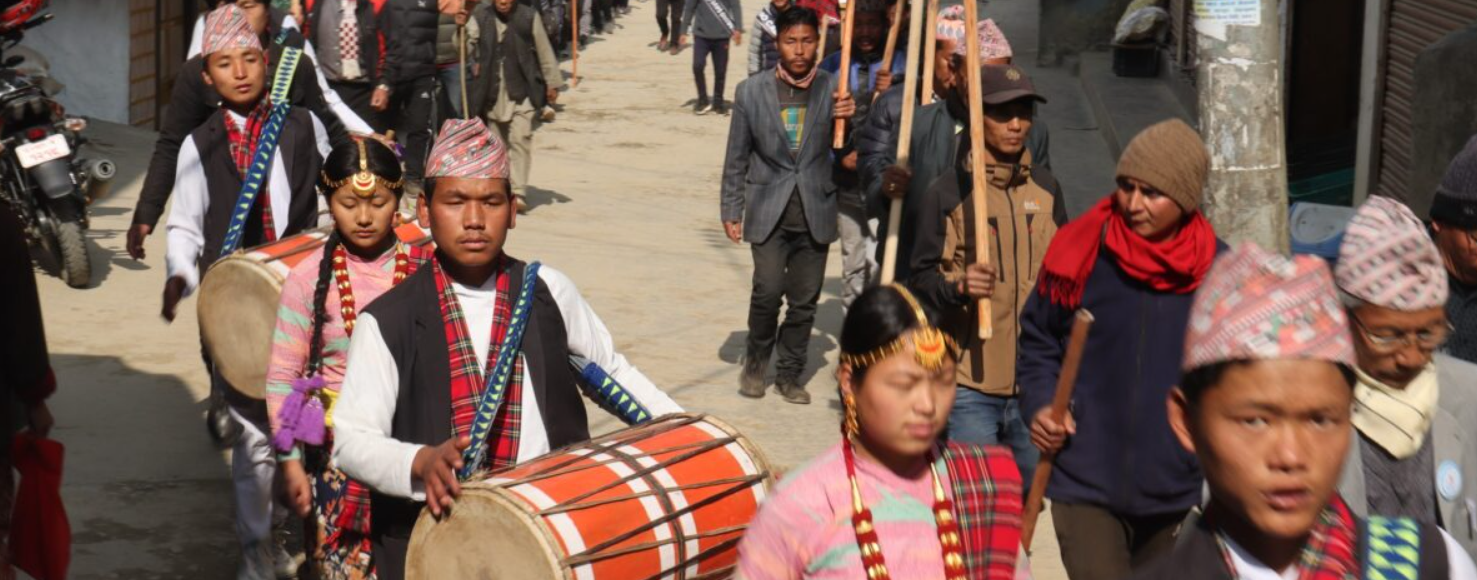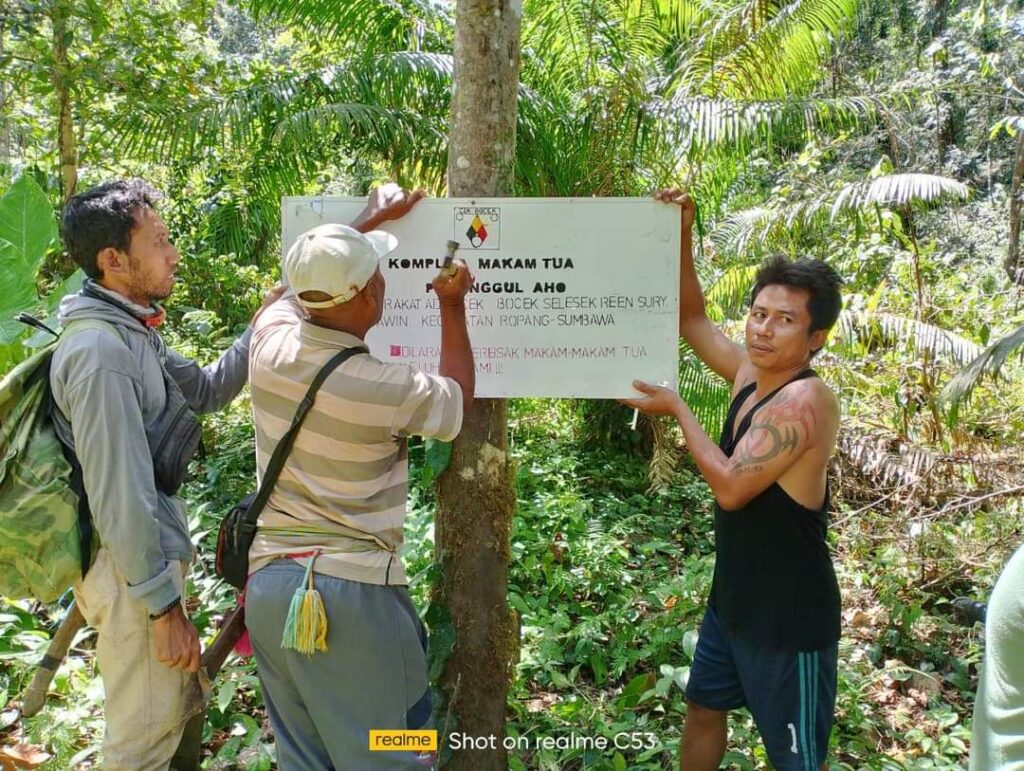NEPAL 27 August 2025: A construction company supported by a World Bank advisory project is building a cable car up the sacred Mukkumlung mountain in the Himalayas and has already felled over 10,000 trees in forests inhabited by highly endangered snow leopards and red pandas. Indigenous communities who have been protesting against the Pathivara cable car project have been violently repressed by armed police including by live fire.
Today, Indigenous leaders from the Limbu (Yakthung) nation – supported by lawyers and NGOs – are filing a formal complaint against the Bank for breaching its own safeguarding standards, resulting in human rights abuses and the destruction of cultural heritage. The Bank’s private sector lending arm – the International Financial Corporation (IFC) – gave advisory support to one of Nepal’s biggest conglomerates, the IME Group, to build four cable car projects, including the highly controversial $22m Pathivara cable car on Mukkumlung mountain.
IME Group is involved in energy, manufacturing, infrastructure and trading, as well as running the largest commercial bank in Nepal, Global IME Bank. The IFC has provided over $50 million to IME Group over the past decade, plus a $500 million trade finance guarantee. IFC continues to invest in Global IME Bank today, providing ongoing leverage and influence.
The mountain and its forests and biodiversity, is of paramount importance to the Indigenous Limbu people’s culture and religion, have been resisting the project.
In response, the Nepalese government, in support of IME Group’s powerful owner, who is also the President of Nepal’s Federation of Nepalese Chambers of Commerce and Industry, has sent in the Armed Police Force (APF) and Nepal Police who have violently repressed protests, with beatings and live fire.
The complaint alleges that the IFC did not ensure that the IME Group applied IFC’s safeguards to the project, which are meant to provide Indigenous Peoples with protections against environmental and human rights abuses.
“The IFC’s own Performance Standards say that Indigenous Peoples have the right to give their Free Prior and Informed Consent to projects on their lands. But no one ever asked us whether we want this cable car project.” said Saru Singak of Mukkumlung Conservation Joint Struggle Committee. “The project is destroying our forests, mountain and nature sacred to us. It disrespects our cultural heritage and our religion. Yet no one came to talk to our religious bodies or our cultural associations,” she added.
The project encroaches on an area of Kanchanjunga Conservation Area, which is home to endangered species such as the Red Panda, Snow Leopard and Himalayan Musk Deer. These animals are under threat of extinction due to forest clearance and the construction of the cable car – however, no study has been carried out on the project’s impacts on these and other endangered species.
Although the cable car project has extensive social and environmental impacts, no formal Environmental Impact Assessment was carried out. Instead, a much more limited Initial Environmental Examination was completed and only done after project approval – in breach of national laws. Section 6 of Nepal’s Environment Protection Act 1997 requires an EIA for any project that has a significant environmental impact.
“We have challenged this project in the Supreme Court on the grounds of violations of our lands, territories and resources as well as environmental destruction – where the case is sub judice,” says Advocate Shankar Limbu, Vice-Chair of Lawyers’ Association for Human Rights of Nepalese Indigenous Peoples (LAHURNIP). “It is a clear case of violations of constitutional and 1774 Treaty rights of Indigenous Limbu nation, which is tantamount to cultural genocide.” ”
“Nepal’s government authorities and some parliamentarians have sacrificed the rights of Indigenous Limbus for the vested financial interests of a powerful business consortium by promoting the cable car project” says Prabindra Shakya, Convenor of Asia Indigenous Peoples Network on Extractive Industries and Energy (AIPNEE). “In advising this business group, the IFC – that has a mandate to improve lives of people – has added insult to injury, furthering this injustice against the Limbu nation.”
The IFC exited the project last year, which would normally block a complaint from being accepted. However, the complainants say they have a clear argument for eligibility given IFC’s lack of transparency about its involvement.
The IFC only disclosed the advisory project publicly in July 2024 – nearly two years after investing – and only confirmed its involvement in the Pathivara cable car in writing to affected communities on 19 May 2025, nine months after it had exited the investment.
“The IFC is currently consulting on its review of its Performance Standards and it clearly needs to improve the way it engages with Indigenous Peoples. It can start by meeting with them on their terms and learning from experiences like these where things have gone so badly wrong,” says Kate Geary, Programme Director for Rights and Accountability at Recourse.
In the complaint, Indigenous leaders and supporting organisations call on IFC to release all project documents, and urge that all encroachment on sacred sites ceases, security forces are withdrawn and the violence ends, an independent investigation into human rights abuses is commissioned, and construction is stopped until the project is brought into compliance and grievances are resolved, including through peacebuilding and reconciliation.
CONTACT:
- Advocate Shankar Limbu, LAHURNIP: shankar1database@gmail.com, +977 9851 007932
- Prabindra Shakya, AIPNEE: prabin@aipnee.org, +977 9860 980745
- Kate Geary, Recourse: kate@re-course.org, +44 7393 189175
NOTES TO EDITORS
Complainants to the case are leaders from the Indigenous Peoples Organisation of Limbu (Yakthung) nation, Kirat religious organisation and the Mukkumlung Conservation Joint Struggle Committee, supported by their legal counsel, Lawyers’ Association for Human Rights of Nepalese Indigenous Peoples (LAHURNIP) and advised by and Asia Indigenous Peoples Network on Extractive Industries and Energy (AIPNEE), and Recourse.
The formal complaint has been filed to the accountability mechanism of the International Finance Corporation, the Compliance Advisor Ombudsman (CAO).


